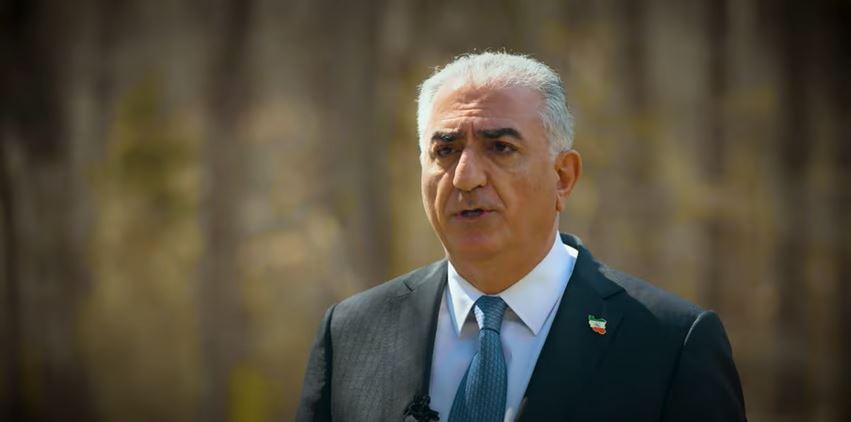The exiled son of Iran’s Shah, who was overthrown during the 1979 Revolution, will be visiting Israel this week. The visit also comes amid ongoing tensions between Israel and Iran.
The Israeli government announced on Sunday that Reza Pahlavi, the exiled son of the ousted Iranian Shah Mohammed Reza Pahlavi, will be visiting Israel this week. Israel referred to Pahlavi as the “most senior Iranian personality” to make a public visit to the country. Israel and Iran had closer relations under the US-backed Pahlavi’s rule but have since turned into adversaries.
The Israeli government said in a statement that Reza Pahlavi’s visit to Israel aims to create a “bridge between Israel and the Iranian people and expressing joint opposition to the Ayatollah regime.”
“A democratic Iran will seek to renew its ties with Israel and our Arab neighbors,” said Reza Pahlavi, according to the statement. “In my opinion, that day is closer than ever.”
Reza Pahlavi will also be participating in Israel’s official Holocaust memorial ceremony during his visit.
Previously, Pahlavi has expressed his support for the ongoing anti-government protests taking place in Iran. The demonstrations were sparked in September following the death of Kurdish Iranian Mahsa Amini in the custody of the morality police. Amini died days after she was detained for allegedly violating the compulsory Islamic dress code, sparking public outrage with women defiantly removing or burning their veils.
In an interview with Reuters in February, Pahlavi said that a group of exiled Iranians is seeking to shore up support among opposition movements in the country in an effort to further pressure Iran’s clerical leaders in the midst of Tehran’s crackdown on the protests. The unrest has resulted in sanctions from the West, but Pahlavi said that sanctions are not enough and that internal pressure must also be done.
Pahlavi said they were looking into how they could support the opposition movement in Iran, adding that there have been discussions on “maximum pressure and more sanctions,” noting that there must also be just as much support as there is pressure. Pahlavi, who is based in Washington, said that the focus must be on making sure Iranians maintain access to the internet, helping fund labor strikes, and finding ways to ease money transfers to Iran.



 U.S. Announces Additional $6 Million in Humanitarian Aid to Cuba Amid Oil Sanctions and Fuel Shortages
U.S. Announces Additional $6 Million in Humanitarian Aid to Cuba Amid Oil Sanctions and Fuel Shortages  Nighttime Shelling Causes Serious Damage in Russia’s Belgorod Region Near Ukraine Border
Nighttime Shelling Causes Serious Damage in Russia’s Belgorod Region Near Ukraine Border  India–U.S. Interim Trade Pact Cuts Auto Tariffs but Leaves Tesla Out
India–U.S. Interim Trade Pact Cuts Auto Tariffs but Leaves Tesla Out  Trump Signs “America First Arms Transfer Strategy” to Prioritize U.S. Weapons Sales
Trump Signs “America First Arms Transfer Strategy” to Prioritize U.S. Weapons Sales  Jack Lang Resigns as Head of Arab World Institute Amid Epstein Controversy
Jack Lang Resigns as Head of Arab World Institute Amid Epstein Controversy  Trump Allows Commercial Fishing in Protected New England Waters
Trump Allows Commercial Fishing in Protected New England Waters  Trump Says “Very Good Talks” Underway on Russia-Ukraine War as Peace Efforts Continue
Trump Says “Very Good Talks” Underway on Russia-Ukraine War as Peace Efforts Continue  Missouri Judge Dismisses Lawsuit Challenging Starbucks’ Diversity and Inclusion Policies
Missouri Judge Dismisses Lawsuit Challenging Starbucks’ Diversity and Inclusion Policies  U.S. Lawmakers to Review Unredacted Jeffrey Epstein DOJ Files Starting Monday
U.S. Lawmakers to Review Unredacted Jeffrey Epstein DOJ Files Starting Monday  US Pushes Ukraine-Russia Peace Talks Before Summer Amid Escalating Attacks
US Pushes Ukraine-Russia Peace Talks Before Summer Amid Escalating Attacks  Trump Lifts 25% Tariff on Indian Goods in Strategic U.S.–India Trade and Energy Deal
Trump Lifts 25% Tariff on Indian Goods in Strategic U.S.–India Trade and Energy Deal  Trump Signs Executive Order Threatening 25% Tariffs on Countries Trading With Iran
Trump Signs Executive Order Threatening 25% Tariffs on Countries Trading With Iran  Trump’s Inflation Claims Clash With Voters’ Cost-of-Living Reality
Trump’s Inflation Claims Clash With Voters’ Cost-of-Living Reality  South Korea Assures U.S. on Trade Deal Commitments Amid Tariff Concerns
South Korea Assures U.S. on Trade Deal Commitments Amid Tariff Concerns  Federal Judge Restores Funding for Gateway Rail Tunnel Project
Federal Judge Restores Funding for Gateway Rail Tunnel Project  Ohio Man Indicted for Alleged Threat Against Vice President JD Vance, Faces Additional Federal Charges
Ohio Man Indicted for Alleged Threat Against Vice President JD Vance, Faces Additional Federal Charges  China Warns US Arms Sales to Taiwan Could Disrupt Trump’s Planned Visit
China Warns US Arms Sales to Taiwan Could Disrupt Trump’s Planned Visit 































